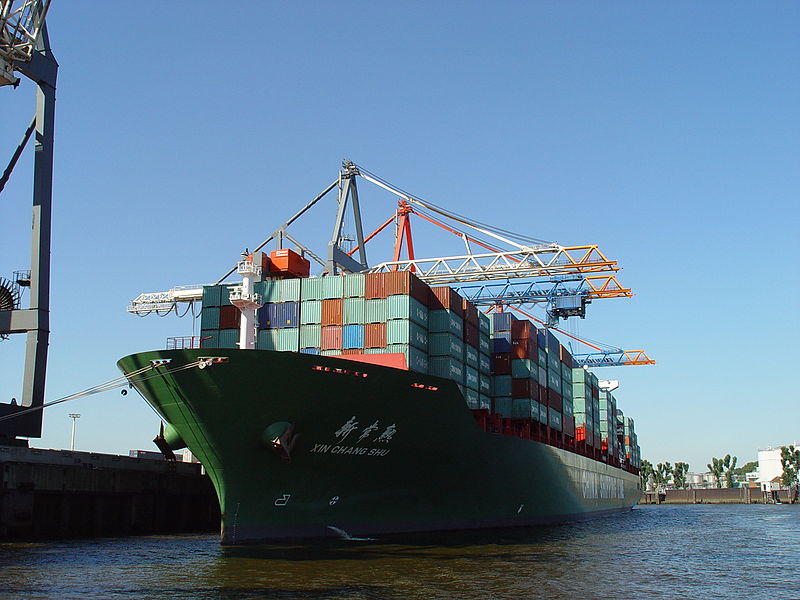John Bethell | Staff Writer
“The Transatlantic Trade and Investment Partnership” (TTIP), a new free trade agreement between the European Union and the United States, has caused much controversy. In short, it aims to remove trade barriers (regulations, tariffs, investment restrictions, etc.) in economic sectors to link the the world’s two largest economies – the United States and the European Union – which in 2013 generated $16.8 trillion dollars and $18.1 trillion dollars of GDP, respectively.
Proponents argue that it would promote multilateral economic growth by liberalising global trade, thus generating millions of new jobs. Evidently this is crucially important, as the two areas strive to cut painfully high unemployment levels in the aftermath of the 2008 financial crisis. Moreover, Brussels has argued that such an agreement would strengthen the geo-political standing of the Transatlantic bloc against the rising economies in BRIC (Brazil, Russia, India and China).
The deal, if sealed, would prove lucrative. An economic assessment prepared by the Centre for Economic Policy Research in March 2013 estimates that a comprehensive agreement will result in annual GDP growth in the EU of between 68 and 119 billion euros by 2027 and annual GDP growth of between 50 and 95 billion dollars in the USA. To put this into perspective, this would mean that the GDP growth estimates, if shared equally among the populace, would translate into additional annual disposable income of 550 euros for a European family of four, and 650 euros for a family of four in the USA.
From a European perspective, farmers will suffer from cheaper manufactured American imports, and broadly speaking many of other industries will be hurt by the increased competition.
While these statistics appear dazzling, they are clearly optimistic. And even if such growth occurs it must be viewed alongside several consequences. From a European perspective, farmers will suffer from cheaper manufactured American imports, and broadly speaking many of other industries will be hurt by the increased competition. In a 2013 Guardian article Dean Baker, of the Centre for Economic and Policy Research in the US, pointed out that with trade barriers between the EU and the USA already low, this deal is more about powerful industry lobbies in both areas attempting to dodge regulation.
The deal will also drastically affect food standards in the European Union, where there are far more restrictions on food sourcing, use of chemicals, and crucially genetically modified organisms (GMOs). This last point has caused the most controversy. Though GM foods hold much promise for the future, in terms of increasing the actual volume of food that the world can produce (allowing development of drought-resistant crops and massively increasing crop yields) a reduction in their regulation would be highly unpopular. Of particular concern is the fact that hundreds of untested GMOs will enter the European food market if this agreement is made. Jamie Oliver called the TTIP deal “dangerous” for this reason. It would be a shame to sacrifice Europe’s strong record in consumer safety, which is largely due to the “precautionary principle,” which ensures any new products meet strict health and safety guidelines.
The biggest concern is that formulation of the agreement has lacked transparency. Noam Chomsky drew attention to this in a speech at Durham University in May 2014, where he accused the negotiators of secrecy, and argued, “They are not secret to hundreds of corporate lawyers and lobbyists who are rating the detailed regulations. You can guess what they are and why they are secret.”
Though the possible economic benefits are enticing to say the least, jeopardising the safety that the European Union brings for the sake of uncertain GDP gains is nonsensical.
Furthermore, attention has been drawn to the way that the agreement will allow corporations too much power. The “investor-state dispute settlement” is an instrument that allows an investor to bring a case directly against the country hosting its investment, without the intervention of the government of the investor’s country of origin. A coalition of 200 environmentalists and labour unions on both sides of the Atlantic responded to this, claiming that such a settlement is simply a one-way street, by which “corporations can challenge government policies, but neither governments nor individuals are granted any comparable rights to hold corporations accountable.” George Monbiot, writing for the Guardian, summarises the consequences neatly – this settlement would “let rapacious companies subvert our laws, rights and national sovereignty.”
Though the possible economic benefits of this deal are enticing to say the least, the ramifications seem far too serious. Anything that allows corporations to threaten democracy is a bad thing, and to jeopardise the safety that the European Union brings for the sake of uncertain GDP gains is nonsensical. And if the fears about future under-regulation in food safety, worker rights, and the environment are correct, not to mention the the potential for abuse that may be inherent in the trade agreement, we should all be very concerned indeed.
Photo by Beat Strasser







